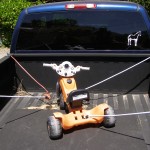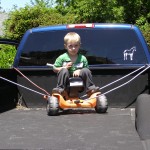Note: This is the first part in a series on being an advocate for your child in school, from preschool to high school.
***********
If you’re a parent with a child in school, you’re probably gearing up for the coming school months. Ever notice the impact school has on your family and your communication with your child? How are you feeling about the start of school this year? How does your child feel?
Do you and your child feel more pressure and stress than during the summer or are you both excited?
My grandson just began first grade, and Orion, his wonderful daddy, has already visited Sebastian’s first grade class, and it’s just the first week of school. Sebastian’s new teacher has a Fly-On-The-Wall sign-up sheet so parents can visit the classroom early in the year. This is a great idea.
Orion made some important observations, and he’s going back to help in the classroom and to continue to observe. Knowing what’s happening with Sebastian while he’s at school is important to him.
Every parent needs to know what’s happening in their child’s classroom. Not just what the children are studying but what does it feel like to be in this classroom. Is the teacher genuinely kind? Is your child happy?
In my experience as a teacher and coach to parents and young people, I often see parents go along with the program, trusting the school staff, seeing them as the experts, and trying to implement what they have been directed to do, seldom questioning what is happening.
Even though school staff tell you what they want you to do, it is essential to research and evaluate for yourself and to make your child’s emotional and physical well-being your highest priority. Is your child flourishing at school, struggling, or just getting by?
Every child is born filled with a drive to learn and succeed in life, according to her Inner Brilliance, her inner knowing of what is best for her. What makes her heart sing. Your child is a natural born learner and no amount of ‘teaching’ can ‘teach’ her to learn.
It’s vitally important for parents to know and experience what their child experiences in the classroom for many hours a day, 5 days a week.
Schools are big places and often feel threatening and intimidating to young people of all ages. Children often see themselves as powerless and believe they need to conform and do what teachers tell them. They don’t know how or if they can speak up for themselves.
This is why she needs you, her parent, grandparent, or caretaker, to be her advocate, to look out for her and ‘have herr back.’ Many educators mean well, yet that doesn’t mean what they are doing or wanting what is best for your child.
It’s your job to pay attention, not in a paranoid, judgmental way, but by being conscious and aware of your child’s school environment.
Here are the three most important things to look for:
1. Does the teacher genuinely like and enjoy young people? Secondly and most important, does she like, admire and appreciate your child? Listen closely. Does she see wonderfulness in him?
As we all know, there are teachers who deeply care about children and enjoy their natural capabilities and brilliance. And there are teachers who only want children to do what they are told and to follow instructions without questioning.
Being a teacher is tough, given the standards and demands put on them by the government to follow the government’s mandates.
2.Does the teacher create a stimulating learning environment? Is your child curious and eagerly engaged in the classroom activities? Is she is eager to go to school every morning?
Children are hard-wired to succeed and to learn, and they do so with eagerness, joy, and curiosity. Is this how your child participates in his class? When he does his homework? Is he on-fire with learning the material and doing the assignments? Is he eager to tell you what he learned?
If not, this is a red flag the teacher is not creating a learning environment that nurtures your child.
3. Does the teacher create an environment in which your child feels emotionally and physically safe?
This is a big one and so seldom noticed. Bullying is bringing the extreme part of this to everyone’s attention, yet I have observed that school is often emotionally and even physically uncomfortable for children
Remember what it was like for you when you were in school? Did you feel you could be yourself and speak up? Was the teacher someone you deeply trusted and enjoyed? Was it comfortable having to sit still in those wooden chairs and be quiet for long periods of time?
Your child spends many hours in their school environment and is counting on you to be as diligent and selective about what is happening at school as you are at home.
I invite you to be your child’s biggest advocate this year, instead of an extension of the school.
You are the expert and the one who cares most when it comes to your child.




 Just a little bit about me -- I'm a coach for parents, visionary guide, insightful trainer, and powerful consultant.
Just a little bit about me -- I'm a coach for parents, visionary guide, insightful trainer, and powerful consultant.